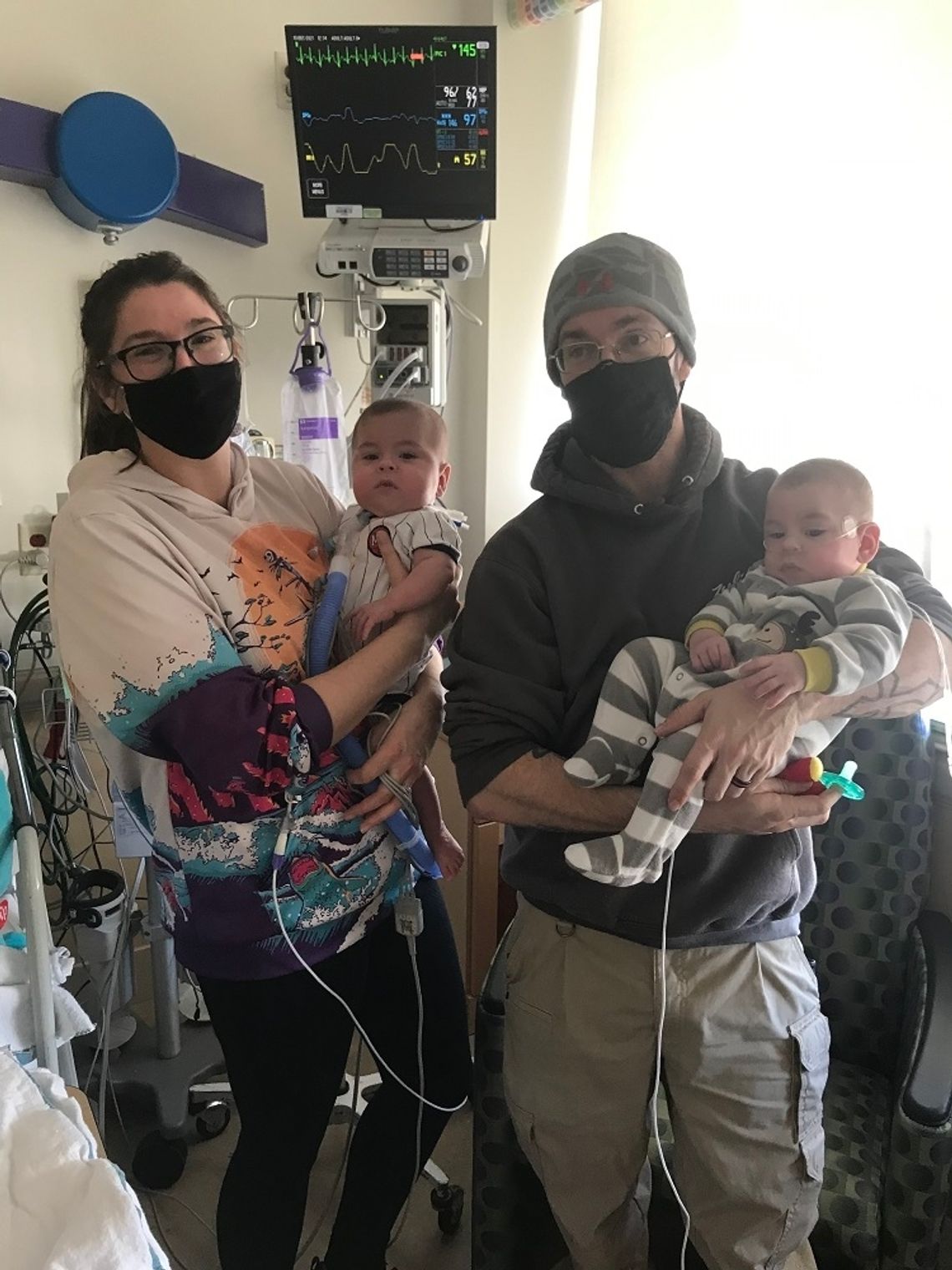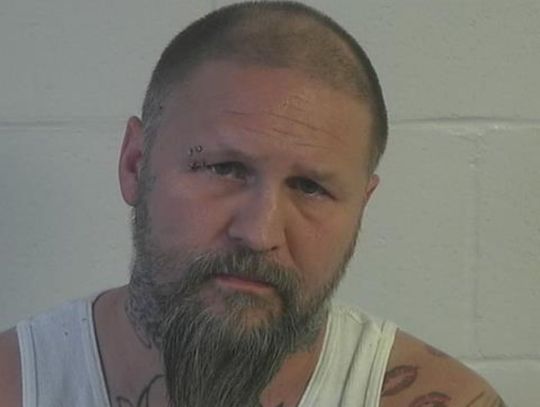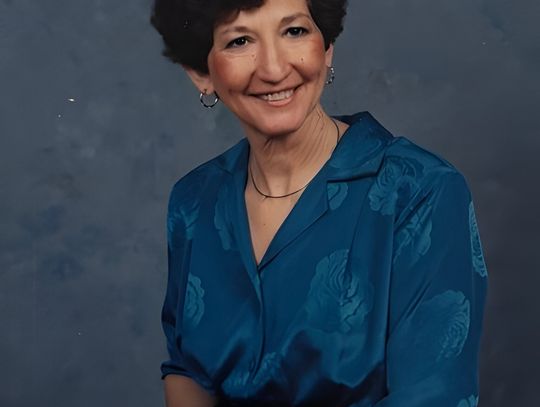Spade and Heather Schmidt welcomed their twin baby boys into the world on March 28. Nine months later, they’re still trying to figure out a way to bring the second one home after encountering one obstacle after another.
The twins, Elijah and Tobias, were born at St. Mary’s Hospital in Reno on March 28 at 28 weeks, with twin-to-twin transfusion syndrome, a rare pregnancy condition affecting identical twins or other multiples. TTTS occurs in pregnancies where twins share one placenta (afterbirth) and a network of blood vessels that supply oxygen and nutrients essential for development in the womb.
Elijah was able to come home on August 9, the same day Tobias was transferred to the Pediatric Intensive Care Unit at Renown Regional Medical Center.
Since then, Spade and Heather have been unable to get the equipment necessary to bring Tobias home, in part because they live too far away from the company in Reno that provides the equipment.
“We’re just doing everything we can to bring our baby home,” Heather Schmidt said.
Tobias has bronchopulmonary dysplasia, tracheomalacia, and bronchomalacia, which basically means parts of his airway are floppy, so it collapses in on itself.
Bronchopulmonary dysplasia is a form of chronic lung disease that affects newborns, most often those who are born prematurely and need oxygen therapy. In BPD the lungs and the airways are damaged, causing tissue destruction in the tiny air sacs of the lung.
Tracheomalacia is a rare condition that happens when the cartilage of the windpipe, or trachea, is soft, weak, and floppy. This can cause the tracheal wall to collapse and block the airway, making it hard to breathe.
Bronchomalacia is a congenital problem that arises from diminished cartilage support of the smaller airways (below the trachea or windpipe). The weakened cartilage usually collapses more easily during expiration and prolongs expiration or prevents expectoration and causes trapping of secretions.
In order to come home, Tobias will need a tracheotomy for a ventilator.
“He’s the toughest baby I’ve ever seen in my life,” Heather said.
Heather and Spade were told earlier this month that Tobias was ready to come home. They made arrangements for the equipment through Preferred Homecare, a medical equipment supplier in Reno which provides the supplemental oxygen twice a week that Elijah needs at home.
However, Heather says, two days before they were to bring Tobias home, they were told that Preferred Homecare won’t provide service in Fallon for that type of equipment.
The person who answered the phone at Preferred Homecare said branch manager Bryan Barnard wasn’t available but provided his email address. At press time, Barnard, or anyone else from Preferred Homecare, had not yet responded to an email asking about the company’s services in rural areas, or what other options are available in rural areas.
Heather Schmidt said she was told the company couldn’t provide that kind of equipment in Fallon because it was more than an hour away for response time in case of an emergency.
“I asked what if we have two ventilators, so we have a backup, and offered to sign any waivers, but they said no, again because they don’t have a respiratory therapist in the area,” she said.
Last week, they found out that Lincare in Fallon could get the equipment they need, but that was nixed by the hospital.
“The hospital is saying they don't feel comfortable with the RT's experience and ended up putting a hold on everything because they made it seem like this RT would have to be certified to physically interact with our child when all he will be doing is servicing the equipment,” Heather said.
Elijah, meanwhile, is at home, but has chronic lung disease, adrenal deficiency and is on a low flow oxygen concentrator.
“We’re trying to wean him off oxygen, but he’s not quite there yet,” Heather said. “He was a preemie so he’s behind, but he’s doing okay. He’s working on it.”
With all other options seemingly exhausted, Heather said they’re being told they have to move closer to Reno in order to get the equipment they need.
So where does that leave them?
“It leaves us completely out of options,” Heather said. “Lincare will no longer help us. Preferred Homecare refuses to help us. The hospital is trying to coerce us into moving Tobias into a permanent care facility. We can’t afford any of the rents in and/or closer to Reno. There is no rental assistance or programs for families in our situation.”









Comment
Comments